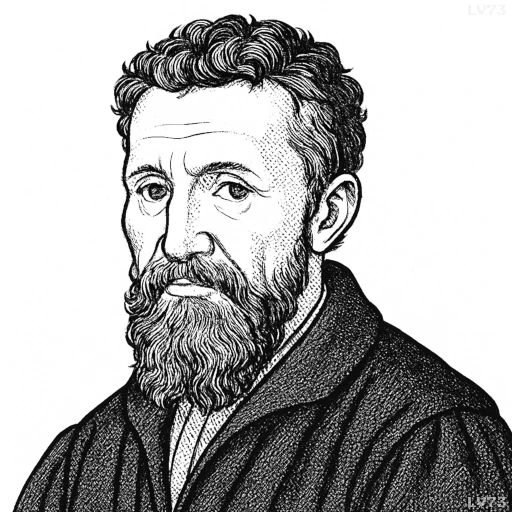“There is no greater harm than that of time wasted.”

- March 6, 1475 – February 18, 1564
- Born in the Republic of Florence (now Italy)
- Sculptor, painter, architect, poet
table of contents
Quote
“There is no greater harm than that of time wasted.”
Explanation
In this quote, Michelangelo expresses a deep appreciation for the preciousness of time and the destructive consequences of procrastination or idleness. For him, the wasting of time is the ultimate loss, as time is the one resource that cannot be regained once it has passed. This sentiment speaks to the Renaissance ideal of using one’s time for productive and purposeful work, whether it be in the pursuit of art, knowledge, or personal growth. Michelangelo himself was known for his intense work ethic and the relentless dedication he brought to his projects, often pushing the boundaries of time and human endurance in his artistic endeavors. His devotion to his craft reflects the belief that time is the most valuable commodity, and any moment spent unproductively is an irretrievable loss.
This quote resonates with the broader human experience of ambition and personal achievement, especially in a modern context where people are often pressured by the demands of productivity and efficiency. In today’s world, where distractions are more prevalent than ever, the idea of time being wasted is a common concern. For example, many people now speak of the importance of time management and prioritization, acknowledging that the ability to focus on meaningful tasks is essential to achieving one’s goals. Michelangelo’s quote could thus serve as a reminder of the importance of making the most of every moment and pursuing one’s passions with a sense of urgency.
Michelangelo’s view on time also ties into the broader Renaissance belief in the human capacity for excellence and achievement. Artists, scholars, and thinkers during this period often viewed their work as a form of divine service, and as such, wasting time was seen as not only a personal failure but a neglect of their duty. This aligns with modern ideas of legacy and purpose, where individuals are encouraged to use their time wisely to make an impact on the world. By emphasizing the harm in wasted time, Michelangelo highlights the timeless value of dedication, discipline, and focus in the pursuit of any meaningful endeavor.
Would you like to share your impressions or related stories about this quote in the comments section?
